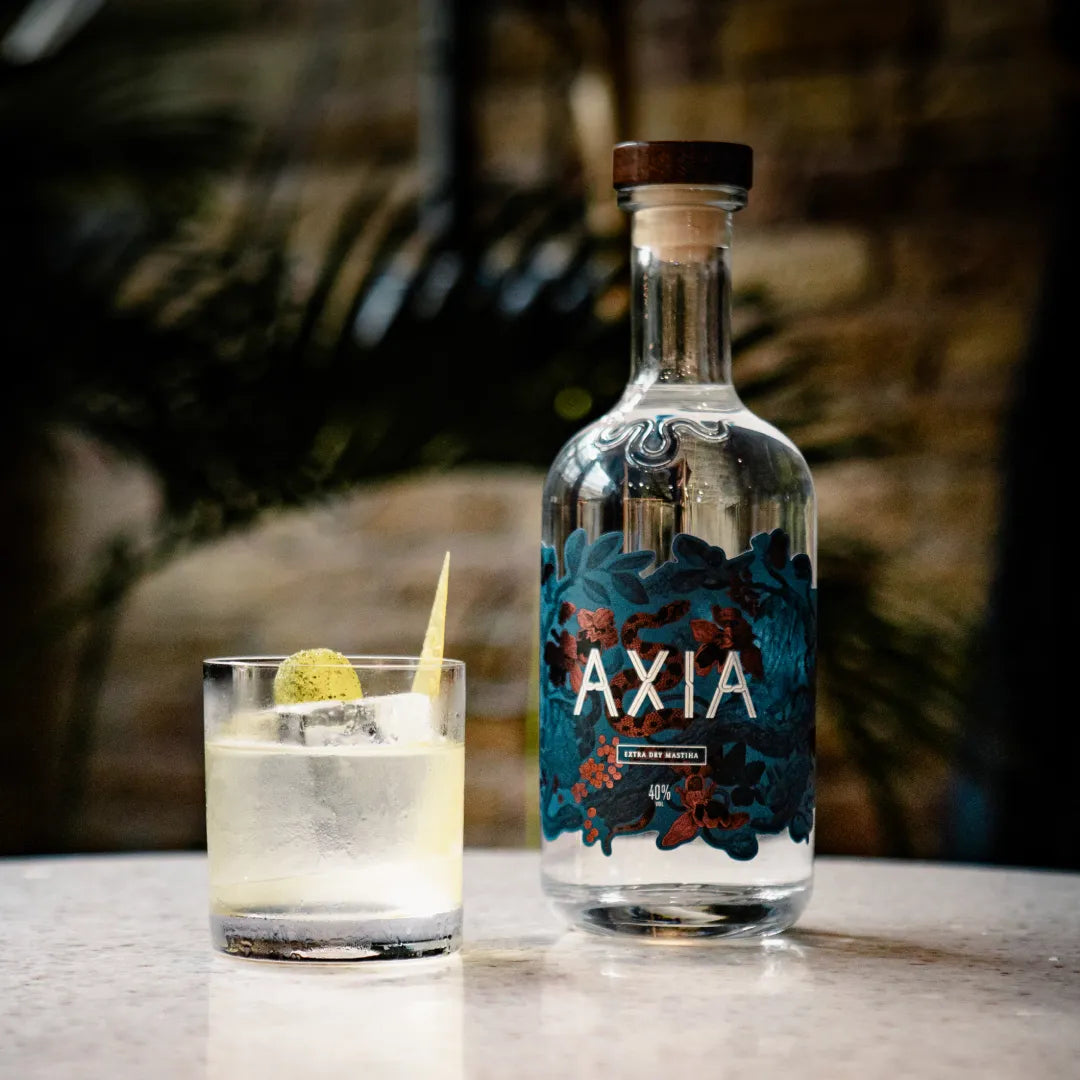
Our commitment
to sustainability

Axia is more than just a spirit; it is a reflection of the land, the people, and the traditions of Chios in Greece, where Mastiha has been cultivated for generations.

Sustainability is not just a goal
Sustainability is not just a goal; it is an essential part of how the plant is harvested, how the community thrives, and how we distil Axia into a truly unique extradry spirit. From hand-harvested trees to low-impact production, every step of Axia’s journey is deeply connected to nature, ensuring that future generations can continue this centuries-old tradition.
Whether sipped neat or mixed into a cocktail, every pour is a celebration of nature, tradition, and innovation; Axia is a spirit rooted in nature and tradition.




The
process

The process
Purified local water
Our distillery, Plomari located in Lesbos, uses locally-sourced, purified water for maceration and distillation, ensuring minimal environmental impact.

The process
Low-waste, energy efficient production
Our traditional copper pot stills are heated using gas, a cleaner alternative to coal or wood-fired heating, reducing emissions whilst maintaining artisanal quality.
Every part of the Mastiha resin is used thoughtfully, with zero waste in the distillation process.

The process
Supporting local communities
We work closely with the Chios Mastic Growers’ Association, a cooperative that has protected Mastiha cultivation since 1938. This partnership directly supports local farmers, ensuring fair wages and
long-term economic stability.
Mastiha: naturally sustainable
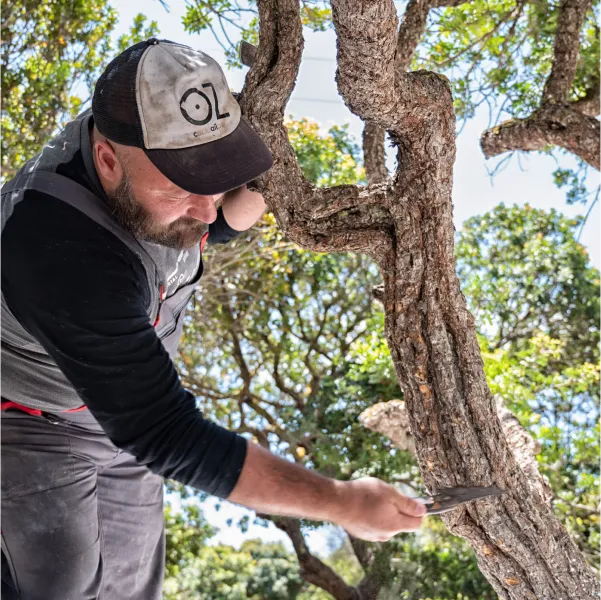
Hand-harvested
Unlike commercial crops, every stage
of Mastiha cultivation is done by hand,
from making precise cuts in the bark to
the collecting and cleaning of the resin
droplets. This method has been passed
down through generations, ensuring both
sustainability and cultural preservation.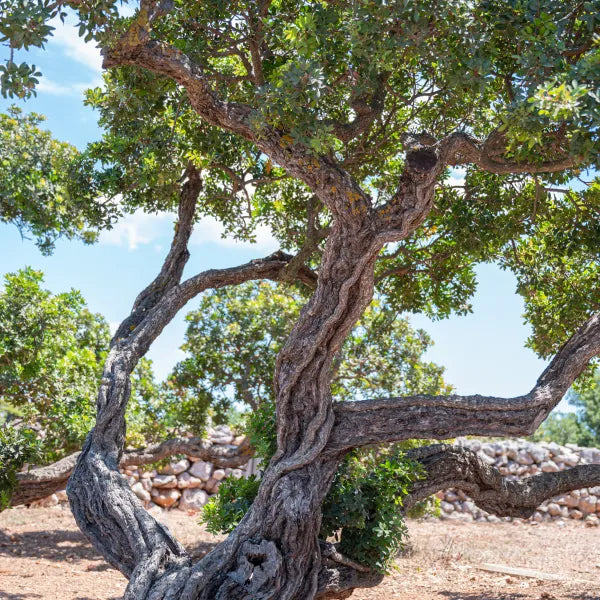
Natural air purifiers
Mastiha trees are natural carbon sinks,
meaning that they pull more carbon
from the atmosphere than they create,
making Mastiha one of the world’s most
sustainable botanicals.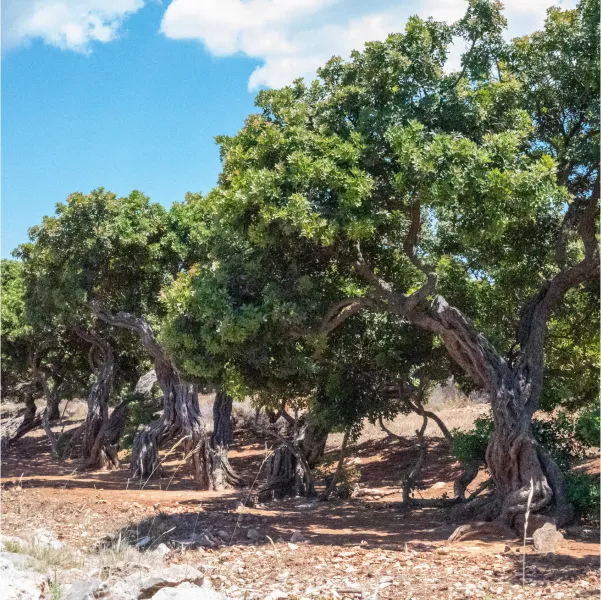
Minimal irrigation
Mastiha trees are naturally drought resistant, needing little to no artificial watering once mature. While young trees require minimal irrigation, established ones thrive on natural rainfall. Attempts to cultivate them elsewhere in Greece and the Mediterranean have failed to produce the same precious resin.
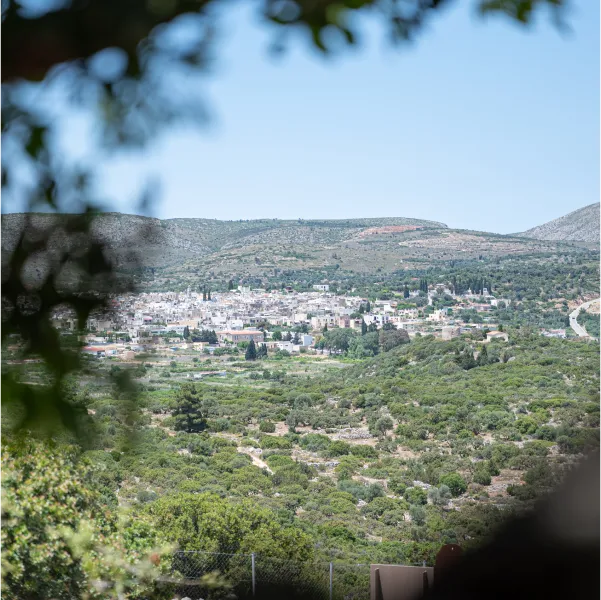
A living heritage
In recognition of its cultural and environmental significance, Mastiha cultivation was inscribed on UNESCO’s Intangible Cultural Heritage of Humanity list. This acknowledgment highlights its deep roots in sustainable agricultural practices and community-led conservation efforts.
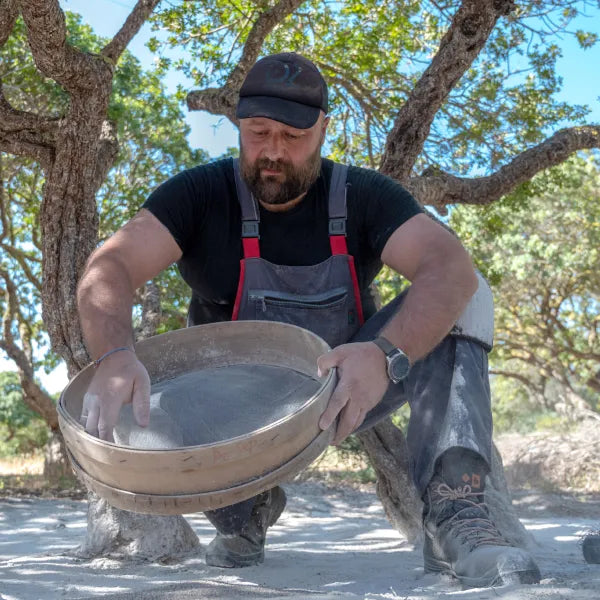
Natural fertilisation
Young shrubs receive limited natural fertilisation, while mature trees rely entirely on the nutrient-rich volcanic soil, reducing the need for external inputs.
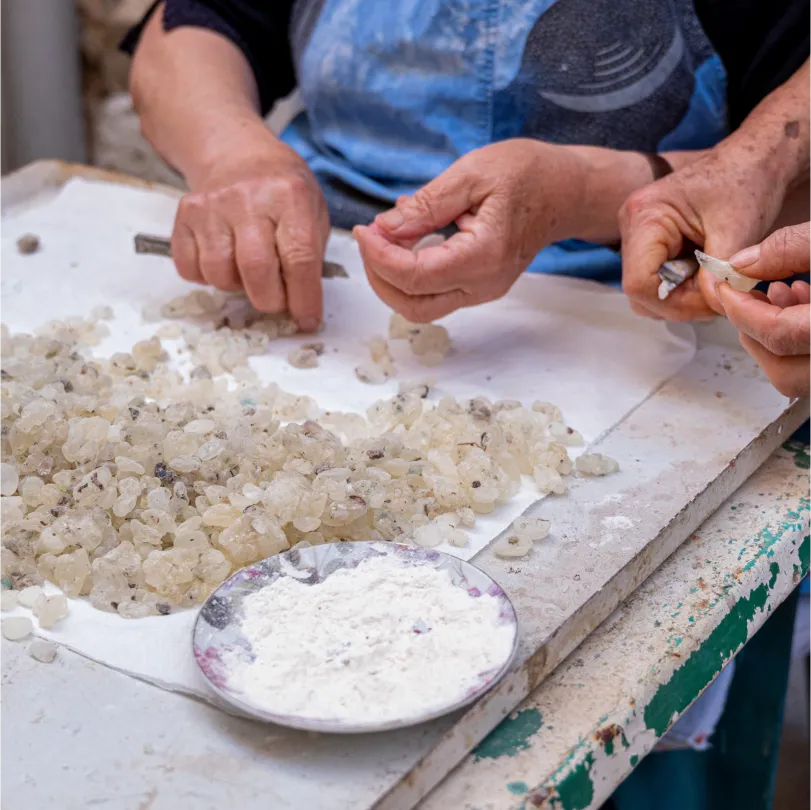
Protected designation of origin (PDO) status
Mastiha is classified as a PDO product by the European Union, meaning it can only be produced in Chios, Greece, following traditional methods that guarantee authenticity, quality, and sustainability.
Greek heritage
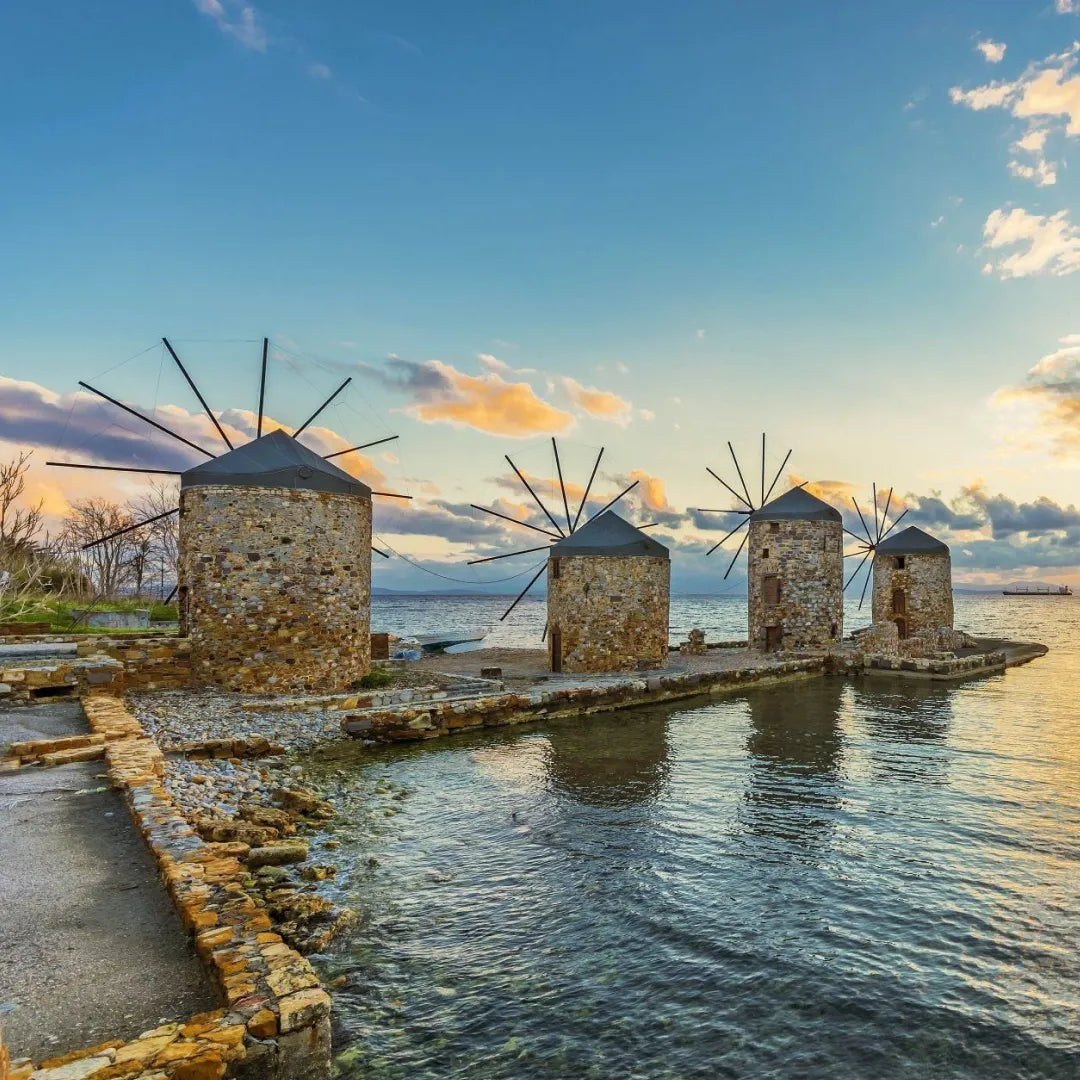
Chios: Island of Mastiha
READ MOREA deep dive into the unique microclimate, heritage villages, and centuries-old cultivation practices that make Chios the home of mastiha trees.
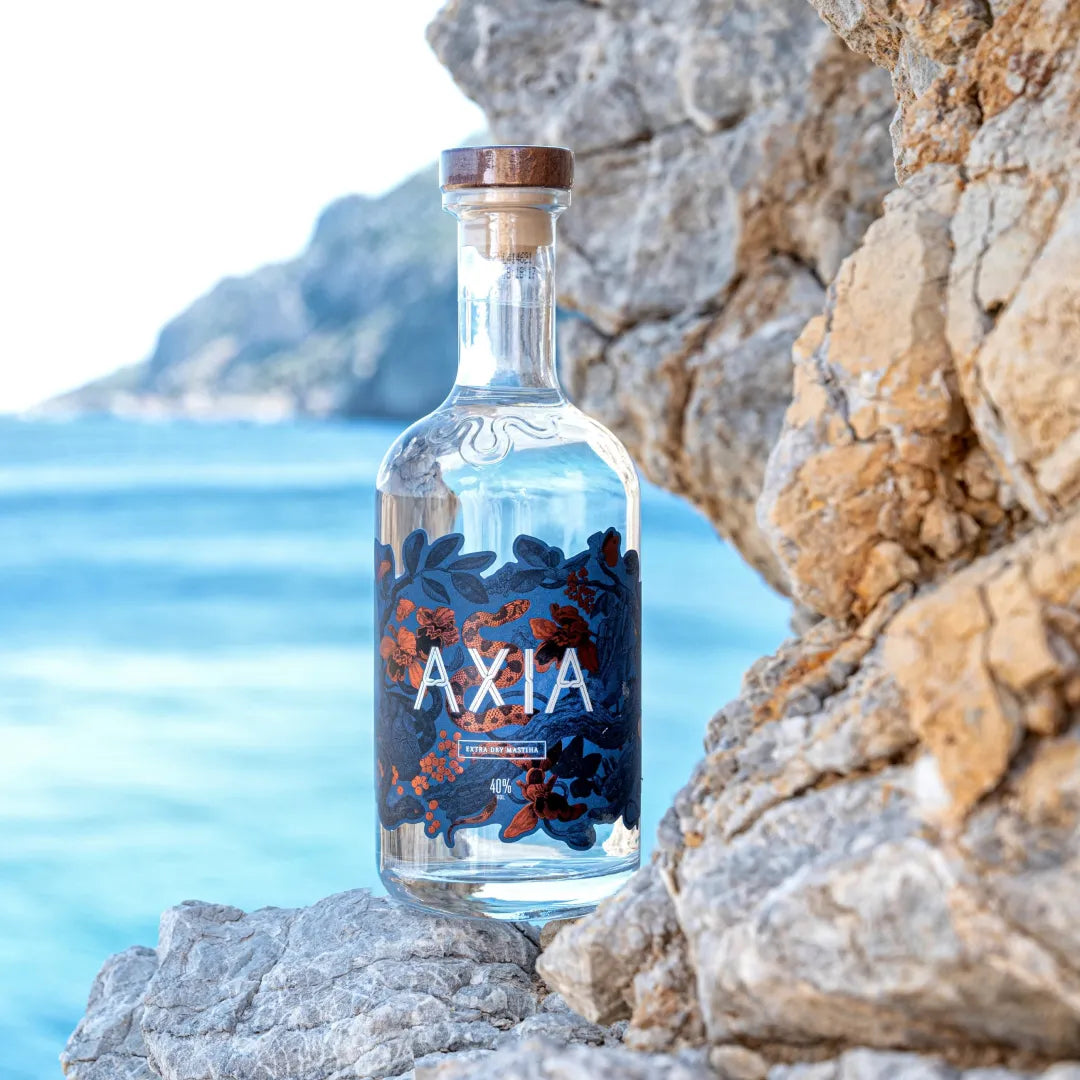
The legacy of Greek spirits
READ MOREFrom ouzo to tsipouro to mastiha, a look at Greece's long tradition of distilling, and how Axia is reimagining these rituals for the modern bar.

Athens on the global stage
READ MOREHow the Greek capital became one of the world's leading cocktail destinations, with pioneering bars and bartenders shaping international trends.














